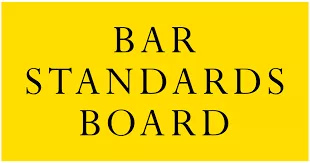Witness evidence takes two forms. Witness statements and oral evidence.
You have to prepare witness statements from all your witnesses well before the trial. There are rules about what a witness statement should look like and include. Both sides have to exchange the witness statements to help each other understand the strength and weaknesses of each side’s cases.
Each witness’s evidence has to be about the facts and based on their own knowledge or belief. Witnesses must make it clear whether what they say in their statement is from their own direct, personal experience (for example, they saw something happen), or if it is based on something they were told by other people or sources that they believe to be true. When stating a belief, they must also say what the source was.
A witness statement needs to be clear, logical and in language the witness understands and would use themselves. It must reflect what they told you and not be ‘spun’ into something similar thatsuits your case better. You must not tell a witness what you want them to say or put words into their mouth.
You should not include statements which are just your opinion about something. Only an expert witness, such as an engineer or a doctor can do this, when they give evidence about something they are experts in, and which is relevant to the dispute. For example, a medical expert can give an opinion about whether or not you will fully recover from an accident.
Where possible, choose an independent witness (not a member of your family or a friend) to give evidence. This is because, unlike your family and friends, they don’t have an interest in the outcome.
If the only witnesses are family or friends you need to do your best to ensure that their witness statements are as factual and neutral as possible.
It may be that you are the only person other than the defendant who was involved in the relevant events. In that case, you may need to prepare a witness statement for yourself, explaining to the court any points which you are unable to deal with using documents, or where you do have documents, but they need explaining. Don’t put it off. It is helpful to produce a formal witness statement, or at least, a comprehensive account of your evidence, very soon after the incident has occurred.
This is because
- it allows you to ensure that you include everything relevant in your statement when you come to write it, as you are drafting it from a detailed account which you made at the time, and,
- it stops your evidence from becoming confused or forgotten with the passage of time (which is perfectly natural).
Some claims might take years to reach a final hearing from the time that the incident occurred. Therefore, it is sensible to gather your evidence as soon as possible while it is still available.
Try to get witness statements as early as possible, especially if from strangers. Witnesses are likely to be able to recall details more easily shortly after an incident than if you ask them some time afterwards. If your witnesses include strangers they may no longer be contactable at the contact details they have given you, or they may lose interest or change their minds about helping if you leave it too long.
Oral evidence
Oral evidence is spoken evidence. You may also hear this kind of evidence called ‘oral testimony’ or ‘witness evidence’.
Witnesses may be required to give oral evidence at trial about the things they have said in their witness statement, especially if the other party does not accept the witness’s evidence and wishes to cross-examine them.
The advantages of calling a witness are that, if you get as far as a trial, they may give clear, direct evidence that supports your case. The disadvantages are that your witness may be vague, forgetful, unsure, frightened, or panicky. They may not turn up or, if they give an inconsistent or confused account, end up being more useful to your opponent than you.
In a small claim, your witness statement, or that of your witnesses, is the evidence of that person and cannot usually be added to. Although a judge might allow you to clarify some points within your witness statement, you will not be able to add any new evidence at the final hearing which is not already in the witness statements. However, you will be able to ask the defendant, and their witnesses, questions on what is contained within their statements, to help you prove your case.
Hearsay
Hearsay is second-hand evidence, where a witness gives evidence of a fact based on what was said to them by someone else.
A civil court accepts hearsay evidence, as long as:
- the hearsay evidence is contained in a witness statement, and when you provide that statement to the other side you explain why you will not be calling the witness to give evidence in person at the trial, or
- the hearsay evidence will be given as oral evidence by a witness at trial and you formally tell the other side what the hearsay evidence is beforehand, and
- you give notice to the court that you will be using it.
These safeguards do not apply to hearsay evidence if you are using the small claims track.
The court is likely to give hearsay evidence much less weight than other forms of evidence, because it is not something you saw or heard yourself.
See our guide to writing or using witness statements and expert reports for information about witness and expert evidence.






